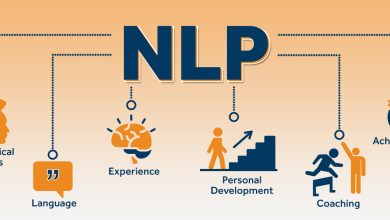
If you want to know more about insurance for residential buildings, read on as we explain what is often covered by insurance for residential buildings. But first, let’s talk about an overview of property owner building insurance and how important it is to you as a landlord.
As a landlord, knowing the importance of insurance can be very helpful if a tenant damages the property or cannot pay the rent. If you rent out a property and rely heavily on the rent you receive from your tenants, you should have landlord insurance. Landlord insurance is important, especially when landlords are exposed to greater financial risks. This is the most obvious situation facing landlords.
Building Insurance for Your Property
If you are a landlord, you are making a big investment. We are aware that a flat insurance policy must protect this investment.
What is flat insurance, you may ask?
A person who owns a flat (also known as a landlord) and uses it exclusively for residential or rental purposes can take out a special insurance policy for commercial buildings (also known as flat insurance) for himself. Regarding property insurance for landlords, there are two main categories of important insurance: the apartment itself and liability. Compensation for lost rental income can be unlimited or time-limited if the apartment becomes uninhabitable due to damage or loss.
- Statutory or legal coverage covers costs incurred in complying with local building codes, laws, and regulations.
- Non-compulsory cover may include environmental damage, drainage, sewerage, machinery, and boilers.
Insurance Policies
Let’s take a closer look at some typical areas covered by landlord insurance. The main areas covered by landlord insurance are rent protection, legal protection, and protection against accidental damage. Landlord insurance protects you against financial loss by covering normal risks such as fire, lightning, explosion, earthquake, storm, flood or oil spill, landslide, theft, and vandalism. The following are examples of insurance policies that homeowners can take out.
Landlord’s Building Insurance
With this type of insurance, private individuals, such as homeowners, have nothing to worry about, as any loss of equipment due to flooding, burst pipes, or fire is covered. Although it covers a lot, it is important to remember that homeowners’ home insurance does not cover damage to the property’s contents.
Landlord’s Building Insurance
Another type of insurance that covers damage to the contents of the building insurance is a policy that covers damage to the contents of the building. You can opt for a limited household contents policy if you can afford it. However, if you rent a building that has been partially or fully renovated, you must take out this type of insurance.
Landlord’s Rental Loss
It can be very beneficial for landlords to consider purchasing rent loss insurance if there is an unexpected loss, such as a tenant refusing to pay rent or becoming unable to pay rent. This is to protect you against loss of rent.
Emergency Assistance
For landlords whose rental properties are not near each other, emergency assistance is available to deal with unexpected situations, such as faulty electrical or kitchen wiring, problems with plumbing, roof leaks including hanging gutters, and broken windows and doors. Such insurance gives you peace of mind when you are away from home.
Legal Expenses Building Insurance
For example, if your tenant refuses to pay the rent, you want to take the tenant to court to recover the amount they owe. The insurance pays “legal costs.” Familiarising yourself with the types of insurance that can protect your property will be your advantage as a landlord. So if you take the time to investigate, it will be to your advantage in the long run.
The Importance of Insurance for Vacant Properties
Many landlords are often interested in insurance for their rental properties but don’t think about insurance for vacant properties. However, many landlords do not consider that vacant property also needs insurance.
- While an empty building may not offer any benefits at the moment, it is still important to protect the building in case something bad happens.
- That way, you can make money from the vacant property in the future. This is where a good insurance policy comes in.
Insurance Can Cover the Cost of Repairs
Unoccupied property insurance is ideal for new properties or buildings that are not currently occupied. This situation often arises when a previous tenant moves out. And is looking for a new tenant to take possession of the vacant property. This can also occur when you are trying to sell a property and are still waiting for a potential buyer. This is one of the main reasons this type of insurance is important.
Suppose the Property is Damaged while Empty
Finding a new tenant or a potential buyer can be very difficult. After all, damage to a property can drive potential tenants or buyers away. For example, if a property is damaged, insurance can cover the cost of repairs and keep the building insurance in good condition.
- If no one lives in the building after 30 days, consider it vacant.
- As the building is unoccupied, it is a good idea to take out empty property insurance.
- This means that no one has seen your property, which can cause damage over time.
Home Insurance Policies
Many places offer a full range of empty home insurance policies. Such policies are available from insurance companies that offer both home insurance and property insurance. A quick search on the internet will give you a list of potential insurance companies. However, it would help if you got a gap insurance permit before starting an insurance plan.
- This is one of the first things the insurance company will ask you.
- A void permit also helps protect the property when it is empty.
- When looking for a good insurance policy. So, it is important to note that this type does not cover as much as a standard home insurance policy.
Conclusion
However, these plans cover all the protection you need for an empty building, including protection against landslides, protection against aircraft, protection against explosions, protection against earthquakes, protection against lightning strikes, and protection against fires. You should consider taking out a vacant property insurance policy if you own vacant property.
Author Bio
Lily Poole is a Property and insurance brokers Brooklyn NY officer by profession. She is pretty well experienced in the insurance and accounting field and has an impressive profile in the training and development industry.




